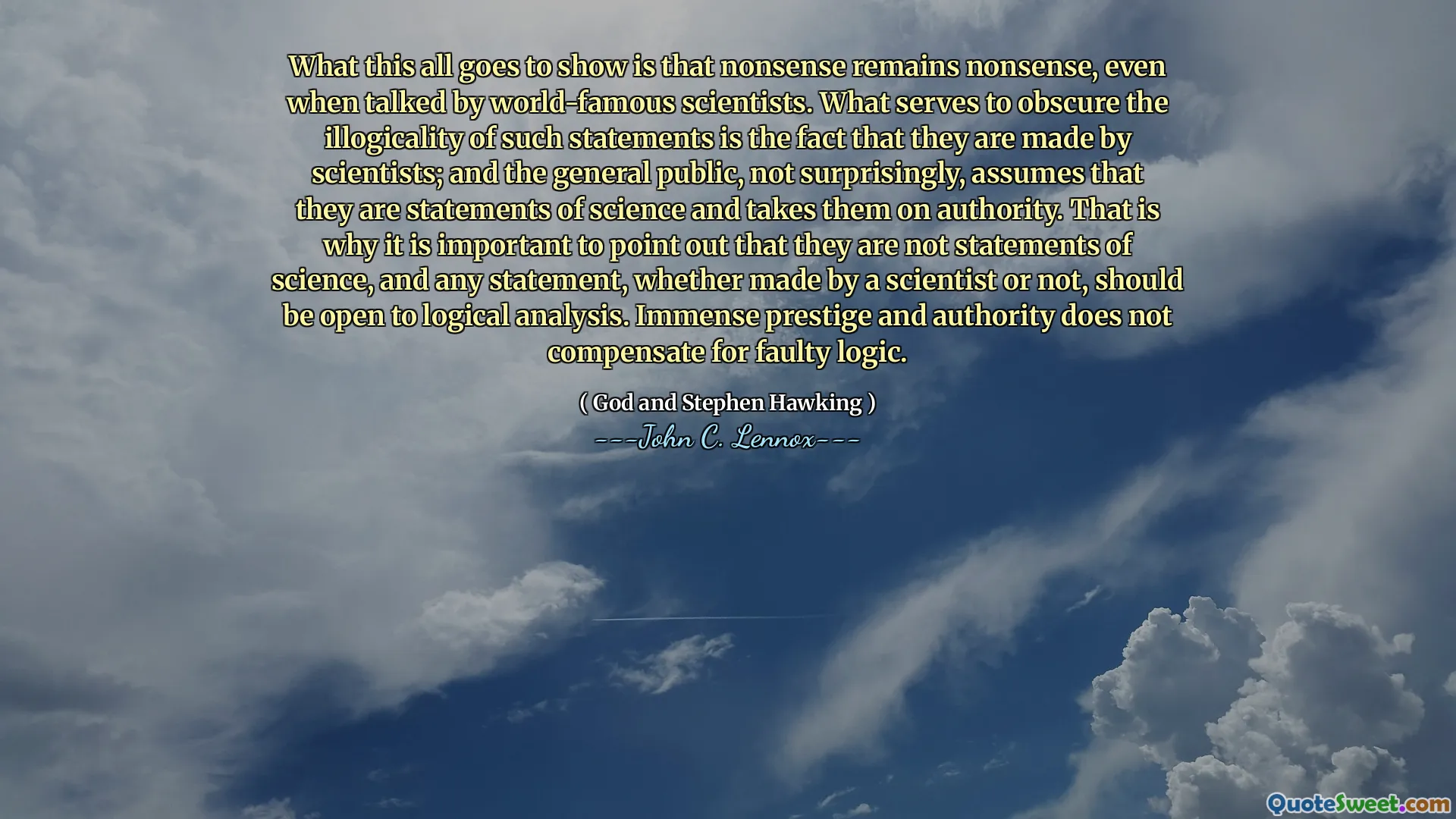
What this all goes to show is that nonsense remains nonsense, even when talked by world-famous scientists. What serves to obscure the illogicality of such statements is the fact that they are made by scientists; and the general public, not surprisingly, assumes that they are statements of science and takes them on authority. That is why it is important to point out that they are not statements of science, and any statement, whether made by a scientist or not, should be open to logical analysis. Immense prestige and authority does not compensate for faulty logic.
This quote highlights a crucial issue in the interface between science, authority, and critical thinking. Often, society places considerable trust in scientists, perceiving their statements as infallible representations of truth. While scientists are trained to approach questions with rigor and objectivity, the tendency to accept their assertions without scrutiny can be problematic. The quote reminds us that scientific authority does not inherently guarantee correctness; statements must be subject to logical and empirical validation regardless of who makes them. This underscores the importance of critical thinking in evaluating claims, even those originating from reputable sources. When scientific statements are fallacious or illogical, the damage can be magnified because of the prestige they carry, leading to misconceptions or misinformation spreading widely. Recognizing that faulty logic is not exclusive to non-experts but can also exist within expert discourse is vital. It advocates for a culture where assertions—regardless of their source—are scrutinized through reasoned analysis instead of blind authority. Ultimately, the message encourages humility in our reception of scientific claims and promotes an ethic of continual questioning and verification. This approach is essential not just within scientific communities, but also for the general public, ensuring that trust is reserved for well-founded, logical, and empirical evidence rather than reputation alone. Such vigilance is fundamental to advancing genuine understanding and avoiding the pitfalls of misplaced authority and intellectual complacency.






